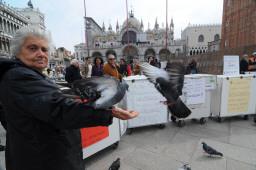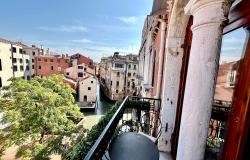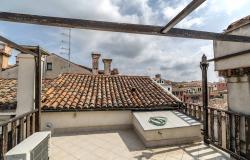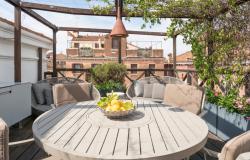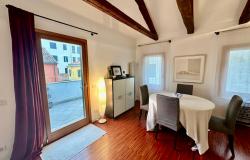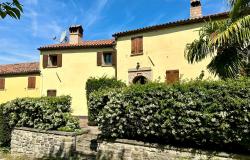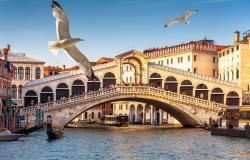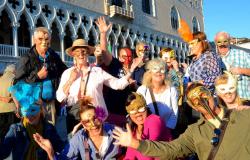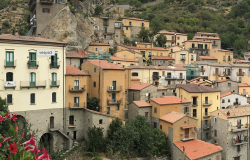Animal rights campaigners in Venice crossed swords with the city council on Friday after distributing 30 kilos of birdseed to flocks of ravenous pigeons in St Mark's Square.
The birds had gone hungry for two days after the age-old tourist tradition of feeding the pigeons in the picturesque square came to an abrupt end.
Although feeding the pigeons has long been outlawed in other parts of the lagoon city, on Wednesday Mayor Massimo Cacciari won his battle to extend the ban city-wide and force the square's 19 licensed birdseed sellers to shut up shop.
Animal rights campaigners said they were feeding the birds on Friday in an effort to stop ''the shameful massacre of the animals through hunger and capture''.
''Pigeons have lived in Venice for centuries and they have a close link with its history, its traditions and its residents: they are one of (the city's) best-known symbols around the world,'' said Cristina Romieri of the Italian Vegetarian Association.
''Now with unjustifiable alarmism the council wants to exterminate them by starving them, ignoring civilised and valid alternative methods like the administration of contraceptive medicine,'' she added.
Tourists, including children, helped the animal rights campaigners distribute the seed in the square but the morning's feeding frenzy failed to capture the attention of the municipal police.
Venice has for years been trying to cut its estimated 40,000-strong pigeon population which produces thousands of tonnes of droppings a day.
While many visitors to the lagoon city find its soaring flocks of pigeons charming, the council says they are a public health menace and a nuisance, eroding the city's historic facades and statues with their highly acidic guano.
Controversial efforts at controlling the pigeons - which Cacciari describes as ''flying rats'' - have included trapping the birds in nets and removing them from the square.
''The city council has been trying to reduce the number of birds for ten years through continuous, violent capture and indiscriminate killing, which adults and children are forced to watch,'' Romieri said.
''Every year around 20,000 pigeons are killed, at a collective cost of 850,000 euros.
''It's an unacceptable, costly and ineffective method rejected by the scientific world: the surviving pigeons continue to reproduce, finding more space and food at their disposal,'' she added.
The evicted birdseed vendors are also unhappy with the council's methods and are seeking 150 euros per day as compensation for their lost jobs.
Failing that, they want the council to issue them with permits to sell souvenirs on the square.
Local people became less sympathetic to the plight of both vendors and birds after a report by the Nomisma research group found that the presence of pigeons in Venice costs each resident some 275 euros a year to clean up the mess and damage.
Some experts even claim the excrement, by eroding flagstones, has increased the risk of the 'acqua alta' that puts the square under water for much of the winter.
The city recently banned the tradition of showering newly-wed couples with rice as part of its bid to tackle the pigeon menace.
